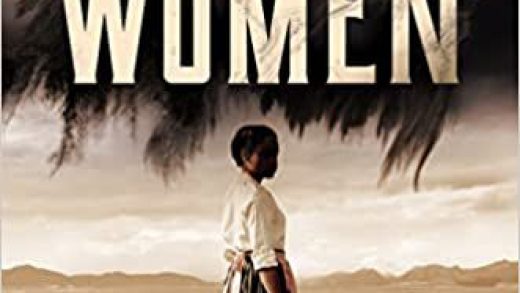Ben Winters, author of “Golden State,” recommends storytellers telling stories about storytellers.
I n the Golden State, the alternative-universe version of California in which my new novel is set, the preservation and maintenance of objective reality is the paramount objective of civic life and law enforcement.
What this means for you and me is that it is illegal to lie.
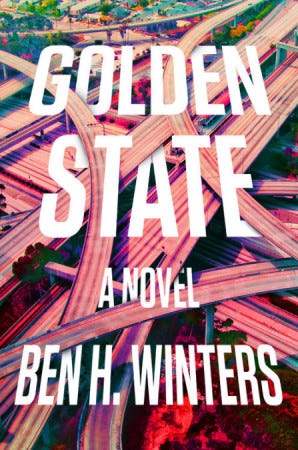
So when the novel’s hero, Laszlo Ratesic, discovers a novel — a fat legal thriller called The Prisoner, hidden in a suspect’s apartment — he doesn’t exactly know what it is, but he knows it’s contraband. What is a novel, after all, but a big long lie? But Laz reads The Prisoner, and is moved by it, and this encounter with the power of story is a turning point in my story, the story of Golden State, and I will tell you confidentially that it was my favorite part to write.
I’ve always found something sort of magical about a book-within-a-book. Stories about stories; storytellers telling stories about storytellers. It is like the author is reminding you, as you are reading, just how extraordinary the whole thing is; what a strange and mystical conspiracy we are all engaged in, readers and writers together.
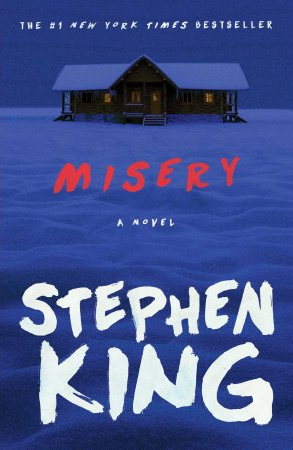
Misery by Stephen King
They do different things in different books, of course, these interpolated books. There are novels that feature authors as characters, so that an understanding of that author’s work is key to understanding the character, or propelling the plot. Stephen King has used author-protagonists once or twice — when you’ve written as many books as King, you’ve done everything once or twice — but never more powerfully than in Misery, in which a super-fan’s affection for a writer’s romance novels curdles into violent obsession.
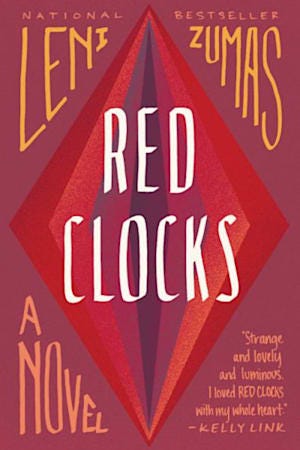
Red Clocks by Leni Zumas
A different kind of writer-protagonist turns up in Leni Zumas’s brilliant and startling Red Clocks, a just-barely-speculative cautionary tale about reproductive freedom in America. One of the many frustrations for the high-school teacher heroine, Ro, is her inability to complete her biography of a polar explorer, who was herself frustrated by the constraints put on her, in her time. So the subject of Ro’s work in progress feels trapped, as if in sea ice, just as Ro does in her time, which is our time.
Dissertations Never Die
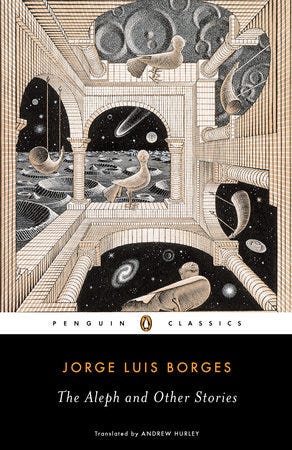
“Tlön, Uqbar, Orbis Tertius” by Jorge Luis Borges
What I’m trying to get across, in this description of a blurred, ambiguous shadowland between Main Book and Buried Book, is the kind of special power a sub-book can provide to the main one. Try reading, for example, the Borges short story, “Tlön, Uqbar, Orbis Tertius,” in which Borges himself (or a character with the same name and life as Borges) discovers a seemingly misprinted encyclopedia volume that includes an entry on a heretofore unheard of country, which leads him into a deep dive into the literature of that (fake? real?) country. The tale swallows its own tail in that sublime, delightful way that is distinctly Borgesian.
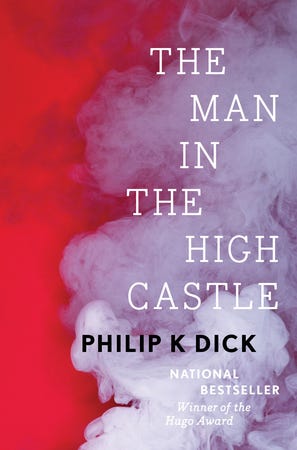
The Man in the High Castle by Philip K. Dick
Speaking of ouroboroses, I give you The Grasshopper Lies Heavy by Hawthorne Abendsen, who is not a real person but a character (the title character, sort of) in The Man in The High Castle by legendary science-fiction madman Philip K. Dick. High Castle is an alternate history in which the Axis powers won World War II; the characters end up searching for Abendsen, author of The Grasshopper Lies Heavy…an alternate history in which the Allied powers won World War II.
The Forgotten Works of Frederick Langley
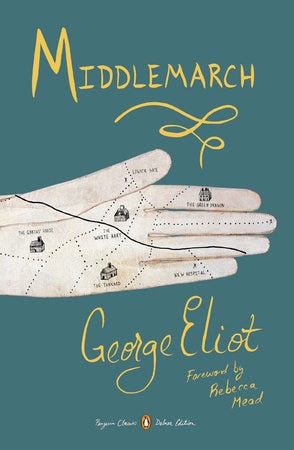
Middlemarch by George Eliot
Metafictional mind games aren’t necessarily the point of books-within-books, of course; they can and do exist in more naturalistic form, as a mark of a character’s interests or ambition or, in the famous case of Middlemarch, his deep flaws. In that sweeping masterpiece by George Eliot (née Mary Ann Evans) Dorothea errs in marrying the dull Reverend Casaubon, who among his many flaws is obsessed with The Key to All Mythologies, the epic philosophical treatise he keeps failing to write.
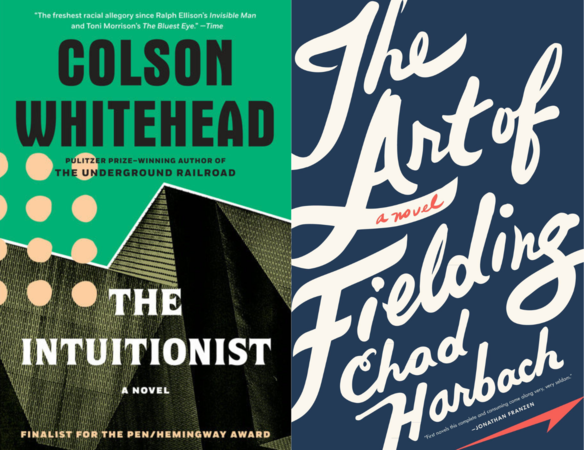
The Intuitionist by Colson Whitehead & The Art of Fielding by Chad Harbach
Sometimes authors create a book-within-a-book as a source of authority or information to which their characters turn for guidance. Lila Mae Watson, in Colson Whitehead’s The Intuitionist, is a devotee of a famous text on the mystical art of elevator repair. Henry Skrimshander, in Chad Harbach’s The Art of Fielding, is a devotee of a baseball memoir also called The Art of Fielding.
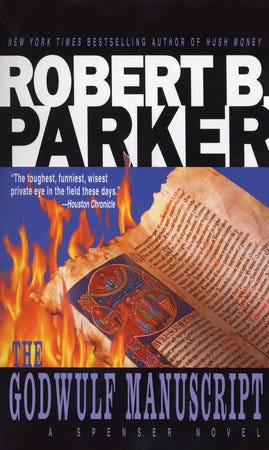
The Godwulf Manuscript by Robert B. Parker
Last but certainly not least, an imaginary book can exist as a Maguffin, another version of the Maltese Falcon or microfiche or glowing briefcase or whatever that characters set off in search of. See, for example, The Godwulf Manuscript, the first of Robert B. Parker’s famous Spenser novels. An illuminated manuscript, supposedly of historical importance, has been snatched from a college campus and held for ransom.
In the decades since Godwulf, the tough-talking, gun-toting P.I. Spencer has gone searching for many things — even after Parker died and the series was taken over by Ace Atkins — but there is something fitting about his adventures having begun with The Godwulf Manuscript. What, after all, is more worth finding than a good book? Even — especially — if it’s hidden within another one.

About the Author
Ben H. Winters is the New York Times bestselling author of Underground Airlines and the Last Policeman trilogy. The second novel in the trilogy, Countdown City, was an NPR Best Book of 2013 and the winner of the Philip K. Dick award. The Last Policemanwas the recipient of the 2012 Edgar Award, and was also named one of the Best Books of 2012 by Amazon.com and Slate. Ben lives with his family in Los Angeles, CA.


8 Fictional Books in Literature was originally published in Electric Literature on Medium, where people are continuing the conversation by highlighting and responding to this story.
Source : 8 Fictional Books in Literature





